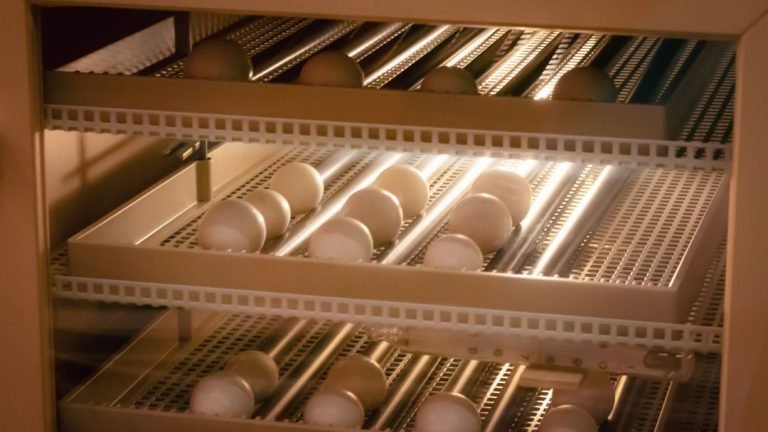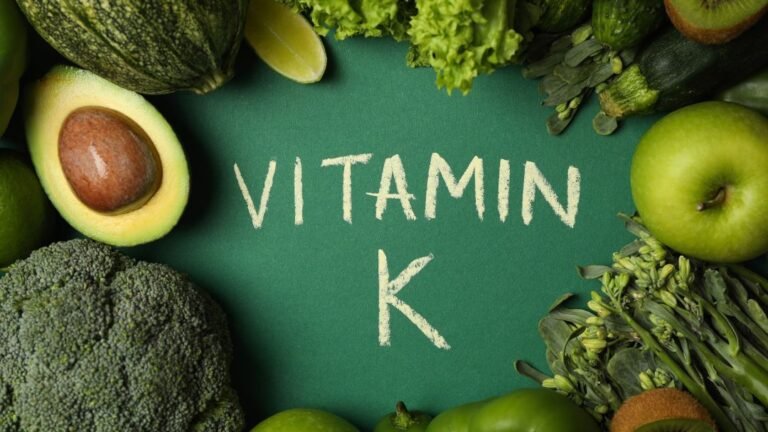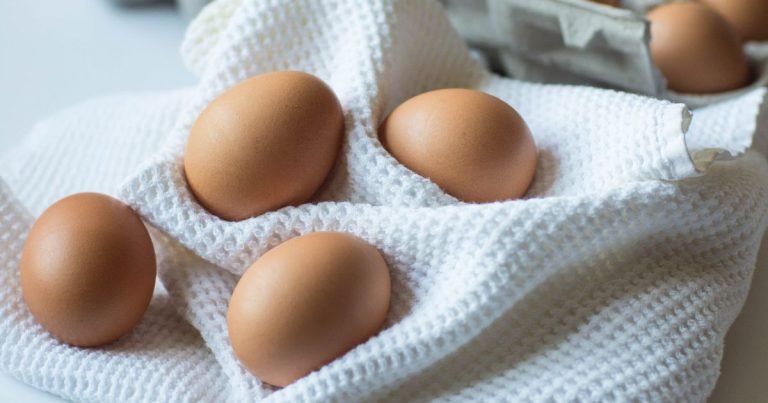Yes, chickens can eat cucumbers and cucumber peels. Cucumbers are a safe and healthy treat for chickens, providing hydration and essential nutrients.
Cucumbers are crisp, refreshing veggies that many of us enjoy as a part of our meals. If you’re a chicken owner, you may wonder if it’s safe to feed cucumbers to your feathered friends. The good news is that chickens can indeed enjoy cucumbers and even their peels.
Not only are cucumbers safe for chickens to consume, but they also offer some health benefits. Cucumbers have a high water content, making them an excellent source of hydration for chickens, especially during hot summer months. Additionally, cucumbers provide essential vitamins, minerals, and dietary fiber, which can support a chicken’s overall well-being. However, it’s important to feed cucumbers in moderation, as too much can disrupt the nutritional balance of a chicken’s diet. Let’s delve deeper into why cucumbers make a suitable treat for your flock.
Understanding Chickens’ Dietary Needs
H3 Chickens’ Natural Diet And Digestive System /h3
Chickens are omnivorous birds that have a natural diet consisting of both plant matter and small insects. Their digestive system is designed to efficiently process a variety of foods and extract the necessary nutrients for their growth and overall health. However, it is essential to understand their dietary needs to ensure they receive a balanced and nutritious diet.
H3 Identifying Safe And Harmful Foods For Chickens /h3
When it comes to feeding chickens, it is crucial to know which foods are safe and which could potentially harm them. While chickens can eat a wide range of fruits, vegetables, grains, and even meat scraps, there are some foods that should be avoided. These may include avocados, chocolate, caffeine, onions, and high-salt foods, as they can be toxic or detrimental to a chicken’s health.
On the other hand, cucumbers and cucumber peels are generally safe for chickens to consume, making them a healthy addition to their diet. However, it is important to feed cucumbers and other treats in moderation, as too much can disrupt the balance of their overall diet.
H3 The Importance Of A Balanced Diet For Chickens /h3
Just like humans, chickens require a balanced diet to thrive and maintain optimal health. A well-rounded diet ensures that they receive all the necessary vitamins, minerals, and nutrients. This includes a combination of high-quality poultry feed, fresh water, and a variety of fruits, vegetables, and grains. Offering a diverse range of foods not only promotes physical health but also provides mental stimulation for chickens.
A balanced diet also helps to support healthy egg production, ensuring that the eggs laid by your chickens are packed with nutrients. Additionally, providing a varied diet can help prevent boredom and undesirable behaviors such as feather picking and egg eating.
In conclusion, understanding the dietary needs of chickens is crucial for their overall well-being. While cucumbers and cucumber peels are generally safe for chickens to eat, it is important to ensure a balanced diet by offering a variety of nutritious foods. Monitoring their diet and providing appropriate treats in moderation will help keep your flock healthy and happy.
Nutritional Value Of Cucumbers
When it comes to feeding our backyard chickens, it’s important to ensure they receive a well-rounded and nutritious diet. While many poultry owners stick to the traditional feed and grains, it’s worth exploring other options that can add variety to their diet. One such option is cucumbers. But before we dive into whether chickens can eat cucumbers, let’s first take a look at the nutritional value of these crispy and refreshing vegetables.
Nutritional Composition Of Cucumbers
Cucumbers are not only low in calories but also packed with beneficial nutrients. Here’s a breakdown of the nutritional composition of cucumbers:
| Nutrient | Amount per 100g |
|---|---|
| Water | 95.2g |
| Calories | 15 |
| Protein | 0.6g |
| Carbohydrates | 3.6g |
| Fiber | 0.5g |
| Fat | 0.1g |
Note: The values mentioned above are approximate and may vary depending on the variety and freshness of the cucumbers.
Vitamins And Minerals Found In Cucumbers
Cucumbers are not just hydrating, they also offer a range of essential vitamins and minerals. Here are some of the key nutrients found in cucumbers:
- Vitamin K
- Vitamin C
- Vitamin A
- Potassium
- Magnesium
- Manganese
Health Benefits Of Cucumbers For Humans
Cucumbers have long been hailed for their potential health benefits. While these claims are centered around human consumption, it’s essential to understand that chickens can also benefit from some of the nutrients present in cucumbers. Here are a few potential health benefits of cucumbers for humans:
- Promotes hydration
- Aids in digestion
- Supports weight management
- Provides antioxidants
- May have anti-inflammatory properties
Keep in mind that the nutritional requirements and digestive systems of chickens differ from ours. Therefore, while cucumbers might provide some benefits to chickens, it’s crucial to feed them in moderation alongside a balanced chicken feed.
Now that we’ve explored the nutritional value of cucumbers, let’s explore whether chickens can indeed eat cucumbers and their peels in our next section.
Feeding Cucumbers To Chickens
When it comes to adding variety to your chickens’ diet, cucumbers can be an excellent option. Not only can chickens eat cucumbers, but they can also enjoy the nutritious benefits they have to offer. In this article, we will explore the different aspects of feeding cucumbers to chickens, including introducing them slowly, appropriate serving sizes, and preparing cucumbers for consumption.
Introducing Cucumbers To Chickens’ Diet Slowly
If you’re planning to introduce cucumbers to your chickens’ diet, it’s important to do so gradually. Sudden dietary changes can upset their digestive system, leading to potential health issues. To avoid any problems, follow these steps:
- Begin by offering small pieces of cucumber to a few chickens as a treat.
- Observe how they react and if they consume it without any problems.
- If there are no adverse effects, gradually increase the amount of cucumber provided over time.
- Monitor their behavior and overall health to ensure they adapt well to the new addition.
Appropriate Serving Size For Chickens
While cucumbers are generally safe for chickens, it’s crucial to remember that they should be given in moderation. Too much cucumber can lead to watery droppings or diarrhea, which can be harmful to their health. As a general guideline, the appropriate serving size for chickens is:
| Chicken Size | Recommended Serving Size |
|---|---|
| Small-sized chickens (bantams) | About 1/4 of a cucumber |
| Medium-sized chickens | About 1/2 of a cucumber |
| Large-sized chickens | About 1 whole cucumber |
Preparing Cucumbers For Chickens’ Consumption
Before offering cucumbers to your chickens, it’s essential to prepare them appropriately. Follow these steps to ensure their safe consumption:
- Wash the cucumbers thoroughly to remove any dirt or chemicals that might be present on the skin.
- Slice the cucumbers into small, manageable pieces for your chickens to peck at.
- Remove any seeds if they are large or abundant, as they can pose a choking hazard.
By taking these simple precautions, you can ensure that the cucumbers you offer to your chickens are safe and easy for them to consume.
Potential Risks And Precautions
While cucumbers can make a refreshing and nutritious addition to a chicken’s diet, there are a few potential risks and precautions to keep in mind. By being aware of these factors, you can ensure the safety and well-being of your flock.
Possible Digestive Issues Due To Cucumbers’ High Water Content
It’s important to note that cucumbers have a high water content, which can lead to potential digestive issues in chickens when fed in excess. The excess water consumption may dilute their digestive enzymes, resulting in loose stools or even diarrhea. Furthermore, the extra moisture might cause their droppings to become more watery, which can create unsanitary conditions in their coop.
To prevent such problems, it is crucial to feed cucumbers to chickens in moderation. Including a small amount of cucumber as a treat every now and then is generally safe, but avoid overfeeding as it may upset their delicate digestive balance. Remember, moderation is the key to maintaining a healthy diet for your feathered friends.
The Importance Of Moderation In Feeding Cucumbers To Chickens
When it comes to feeding cucumbers to chickens, moderation is paramount. While cucumbers offer nutritional benefits such as vitamins and minerals, excessive consumption can pose challenges to their overall health.
It’s worth noting that cucumbers possess a cooling property, and an excessive amount might lower a chicken’s body temperature. Chickens are warm-blooded animals that require a consistent body temperature for optimal functioning. Feeding cucumbers in moderation ensures that their body temperature remains within the normal range, preventing any potential disruptions to their metabolism and overall well-being.
To maintain a balanced diet for your flock, it’s crucial to offer a variety of other fresh fruits, vegetables, and proteins alongside cucumbers. This diversity not only provides a wider range of nutrients but also reduces the chances of overfeeding on cucumbers alone. Remember, a balanced diet is the cornerstone of a chicken’s healthy lifestyle.
Monitoring Chickens For Any Adverse Reactions To Cucumbers
Just like humans, chickens can have varying levels of tolerance or sensitivity to certain foods. Therefore, it is important to monitor your chickens for any adverse reactions after feeding them cucumbers for the first time or introducing them to larger quantities.
Keep an eye on your chickens’ behavior, appetite, and droppings. If you notice any vomiting, diarrhea, reduced appetite, or other abnormal symptoms, it’s essential to remove the cucumbers from their diet and consult a veterinarian if the symptoms persist or worsen. The well-being and health of your chickens should always be a top priority.
In conclusion, while chickens can enjoy cucumbers as a refreshing treat, it’s crucial to feed them in moderation and monitor their response. By taking these precautions, you can ensure your chickens obtain the nutritional benefits of cucumbers while minimizing the risk of digestive issues or any adverse reactions to this tasty treat.
Can Chickens Eat Cucumber Peels?
Chickens are omnivorous creatures that can eat a wide variety of foods, including fruits and vegetables. When it comes to cucumber, chickens can certainly enjoy the juicy flesh and refreshing taste. But what about the cucumber peels? Are they safe and beneficial for our feathered friends? Let’s find out!
Nutritional Value Of Cucumber Peels
Cucumber peels are rich in nutrients that can be beneficial for chickens. They contain dietary fiber, which aids in digestion, and various vitamins and minerals such as vitamin K, vitamin C, magnesium, and potassium.
| Nutrient | Amount per 100g |
|---|---|
| Vitamin K | 16.4 mcg |
| Vitamin C | 2.8 mg |
| Magnesium | 13 mg |
| Potassium | 147 mg |
Safety Considerations When Offering Cucumber Peels To Chickens
While cucumber peels can be a nutritious addition to a chicken’s diet, it’s essential to consider a few safety precautions. Firstly, make sure the peels are thoroughly washed to remove any traces of pesticides or chemicals. Organic cucumbers are always the best option if available.
Secondly, be mindful of the quantities. Cucumber peels should be offered as a treat rather than a primary feed. Too much cucumber, including the peels, can lead to excessive water consumption in chickens, potentially causing digestive upsets.
Lastly, monitor your chickens after introducing cucumber peels to their diet. Some chickens may have individual sensitivities or allergies, so it’s crucial to observe their behavior and health. If you notice any adverse reactions like diarrhea or decreased appetite, discontinue offering cucumber peels immediately.
Alternative Uses For Cucumber Peels In Chicken Coops Or For Environmental Enrichment
Even if your chickens are not particularly fond of eating cucumber peels, there are alternative uses for them in the chicken coop. Grated cucumber peels can be sprinkled on the coop floor as a form of environmental enrichment. Chickens love scratching and pecking at different materials, and the peels can provide them with mental stimulation and entertainment.
Additionally, cucumber peels can be placed in a compost bin to create nutrient-rich compost for your garden. Their high water content and organic matter make them an excellent addition to the composting process. Remember to cut the peels into smaller pieces to speed up decomposition.
So, can chickens eat cucumber peels? Yes, they can, provided you take the necessary precautions and introduce them as a treat rather than a main feed. With their nutritional value and potential for environmental enrichment, cucumber peels can be a beneficial addition to your chickens’ diet and overall well-being.
Conclusion
To sum up, cucumbers and cucumber peels can be a healthy addition to a chicken’s diet. These green vegetables offer hydration, vitamins, and minerals without posing any significant harm. However, it’s essential to introduce them in moderation, ensuring they don’t replace the crucial nutrients derived from a balanced chicken feed diet.
Keeping a watchful eye on the chickens’ reaction and health is important to ensure their well-being. Happy feeding!



